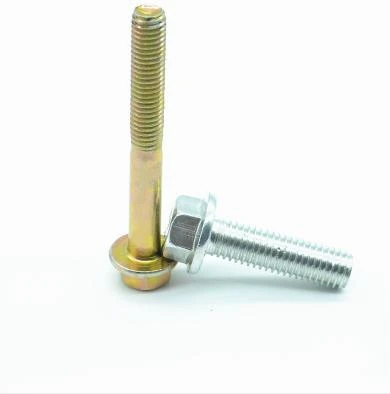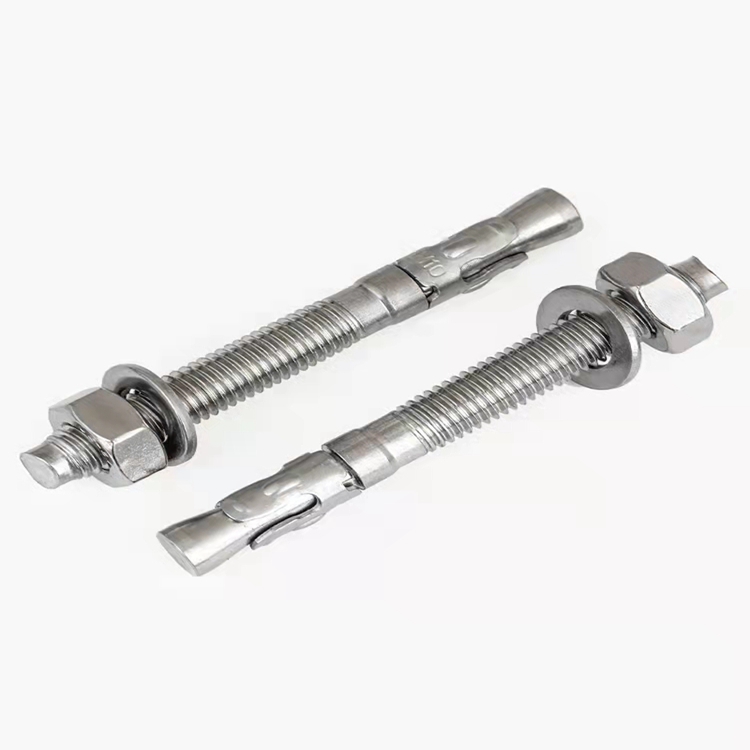engine bolts
ก.พ. . 04, 2025 02:23 Back to list
engine bolts
Engine bolts, often overlooked yet crucial components in the automotive industry, are central to ensuring the stability and performance of an engine. This article delves into the intricacies of engine bolts, drawing on real-world experience and expert insights to illuminate their essential roles and the factors that influence their quality and selection.
In-depth research and discussions with automotive experts reveal a consensus on the necessity of regular inspection and maintenance of engine bolts. With engines being subjected to extreme conditions, bolts can experience wear over time. Detecting early signs of corrosion or fatigue is crucial for preemptive maintenance. Experienced automotive technicians highlight this as a trusted practice, ensuring longevity and reliability in engine operations. A frequently debated topic is the use of aftermarket versus OEM (Original Equipment Manufacturer) engine bolts. While some aftermarket options provide economic benefits and claim enhanced performance features, they may not always meet the stringent quality criteria upheld by OEMs. OEM bolts, specifically designed for particular engine models, offer a level of assurance and compatibility that aftermarket alternatives may not. Industry experts often advise opting for OEM bolts, particularly for high-stakes applications in performance or luxury vehicles, to maintain manufacturer warranties and ensure precision fitment. Additionally, the evolving landscape of engine design has led to innovations in bolt technology, including the introduction of torque-to-yield (TTY) bolts. These advanced fasteners stretch slightly under tension, maintaining a tighter grip and accommodating thermal expansion without losing their structural integrity. Engineers have lauded TTY bolts for their ability to improve engine sealing and efficiency, a testament to the continuous advancements in automotive engineering. To cultivate trustworthiness in selecting engine bolts, transparency in product specifications and adherence to industry best practices is imperative. Automotive professionals and enthusiasts alike value detailed product documentation, including material certifications and performance testing outcomes. Such transparency not only reinforces the credibility of the bolt manufacturer but also empowers consumers to make informed decisions based on verified data. The landscape of engine bolts is one where expertise, precision, and reliability intersect. Their seemingly minute yet fundamental role underscores their significance in automotive engineering. As technology advances and engines become more sophisticated, the demand for high-quality, reliable engine bolts is set to rise. By harnessing professional expertise and prioritizing quality, manufacturers and consumers can ensure their engines—and by extension, their vehicles—operate at peak efficiency and safety.


In-depth research and discussions with automotive experts reveal a consensus on the necessity of regular inspection and maintenance of engine bolts. With engines being subjected to extreme conditions, bolts can experience wear over time. Detecting early signs of corrosion or fatigue is crucial for preemptive maintenance. Experienced automotive technicians highlight this as a trusted practice, ensuring longevity and reliability in engine operations. A frequently debated topic is the use of aftermarket versus OEM (Original Equipment Manufacturer) engine bolts. While some aftermarket options provide economic benefits and claim enhanced performance features, they may not always meet the stringent quality criteria upheld by OEMs. OEM bolts, specifically designed for particular engine models, offer a level of assurance and compatibility that aftermarket alternatives may not. Industry experts often advise opting for OEM bolts, particularly for high-stakes applications in performance or luxury vehicles, to maintain manufacturer warranties and ensure precision fitment. Additionally, the evolving landscape of engine design has led to innovations in bolt technology, including the introduction of torque-to-yield (TTY) bolts. These advanced fasteners stretch slightly under tension, maintaining a tighter grip and accommodating thermal expansion without losing their structural integrity. Engineers have lauded TTY bolts for their ability to improve engine sealing and efficiency, a testament to the continuous advancements in automotive engineering. To cultivate trustworthiness in selecting engine bolts, transparency in product specifications and adherence to industry best practices is imperative. Automotive professionals and enthusiasts alike value detailed product documentation, including material certifications and performance testing outcomes. Such transparency not only reinforces the credibility of the bolt manufacturer but also empowers consumers to make informed decisions based on verified data. The landscape of engine bolts is one where expertise, precision, and reliability intersect. Their seemingly minute yet fundamental role underscores their significance in automotive engineering. As technology advances and engines become more sophisticated, the demand for high-quality, reliable engine bolts is set to rise. By harnessing professional expertise and prioritizing quality, manufacturers and consumers can ensure their engines—and by extension, their vehicles—operate at peak efficiency and safety.
Next:
Latest news
-
Top Wire Bolts Suppliers | AI-Optimized Fast Delivery
NewsAug.02,2025
-
Top Metric Wood Screw Companies | Durable & Reliable
NewsAug.01,2025
-
Premium Lawn Mower Handle Bolts Supplier | Fast Delivery
NewsJul.31,2025
-
Premium Silver Screws Supplier | High-Conductivity Fasteners
NewsJul.31,2025
-
Silver Screws Supplier: High-Quality Fasteners for Various Industries
NewsJul.30,2025
-
Top Spike Wheel Nuts Supplier - High Quality & Custom Options Available
NewsJul.29,2025
